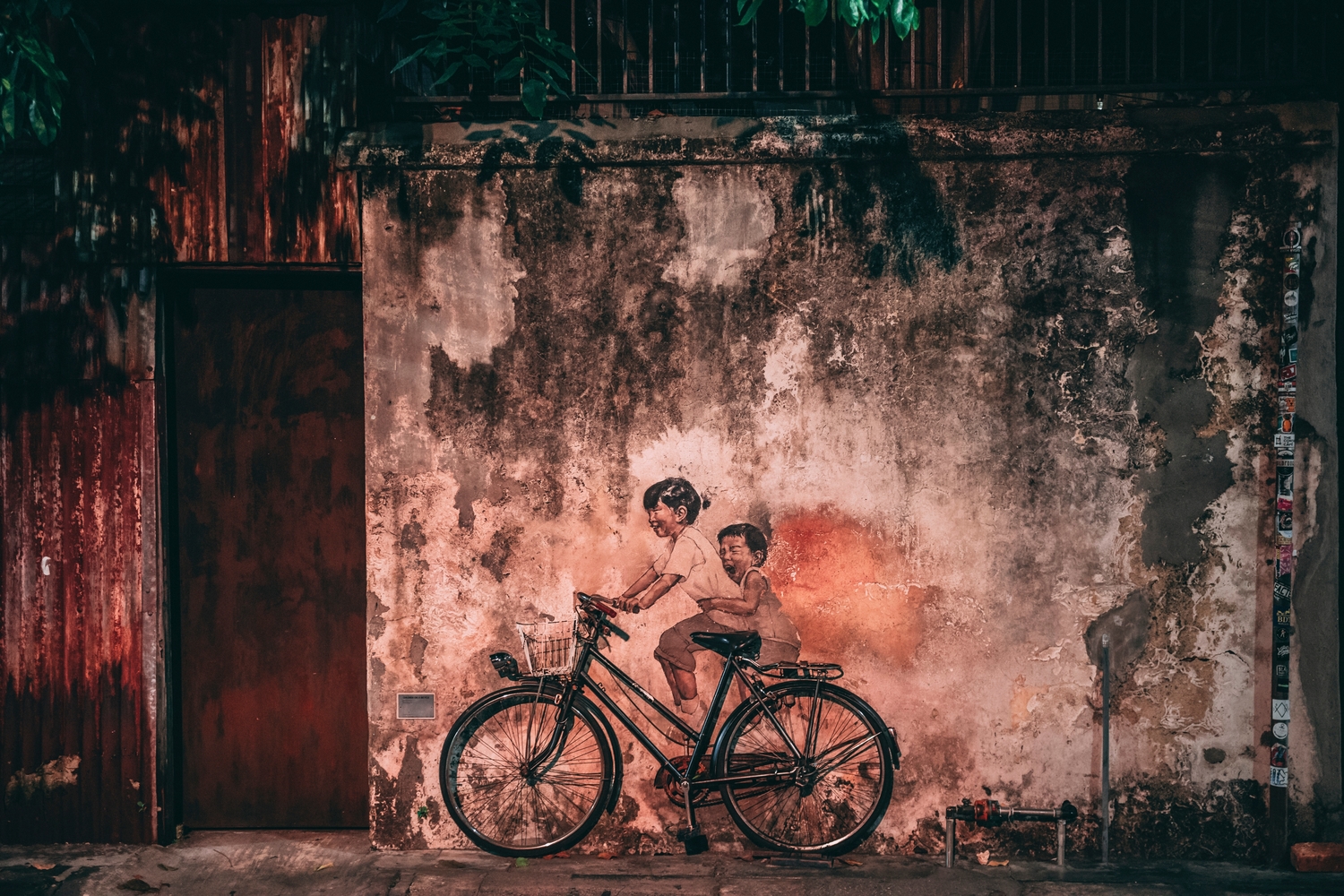Interviews
‘I Think Latinas Are Often Told We’re Not Allowed to Take Care of Ourselves’
Erika L. Sánchez, author of ‘I Am Not Your Perfect Mexican Daughter,’ on depression, stereotypes, and embracing flaws

Erika L. Sánchez is a 10-year overnight success story. The book she worked on for a decade, I Am Not Your Perfect Mexican Daughter, published in October of 2017, became an instant New York Times bestseller and National Book Award Finalist. The cherry on top? It was recently optioned for a major motion film. At this year’s first Latinx in Publishing event I watched as the audience grew eager, or hesitant, to speak with Erika, suddenly shy in her presence. Erika laughed at audience reactions, unable to grasp how a girl who was once a goth is suddenly so cool. Her humor is quick, witty and filled with a tone that says, “duh,” as if she is trying to figure out why the rest of the world can’t keep up.

Underneath, though, is a woman who observes the space around her and utilizes her passions in an effort to change it. Her culture propels her forward and serves as the foundation for her identity. Her award nominated novel isn’t Erika’s first foray into writing. She’s a Princeton Arts Fellow and the Ruth Lilly and Dorothy Sargent Rosenberg Poetry Fellow. Sánchez is multilayered and complex, just like the poetry she wrote in her first book, Lessons on Expulsion. When I sat down with her, she discussed depression, today’s political climate and how, sometimes, stereotypes are true.

Bianca Salvant: Why do you think the world needs to hear stories from and about Latinas?
Erika Sánchez: I think, especially now, there is a picture painted of us that is really inaccurate. Our president is a sociopath. He talks about our community as if we’re all villains. He’s called us criminals and rapists. For me, it is important there are stories like [I Am Not Your Perfect Mexican Daughter] to counteract those narratives. What he is saying is not accurate. The way White-America perceives us is not accurate, which is usually the problem. [Writing by Latinx writers] opens people’s perspectives and they get to see another experience that is not like their own. Hopefully they grow some empathy. Because that is what we need in this world: people to have compassion.
BS: Your latest book, though, felt like satire. Was your intention to poke fun at the stereotypes of Mexicans?
ES: Some things are just true. Stereotypical or not, they just are. I did want to poke fun at some things because I am the type of person who deals with trauma through humor. I took a lot of experiences that I heard from other people and smashed them together into this mother–daughter story. When I talked to Latinas, they’d say, “Yup, that sounds like my mom!” (laughs) Whether it is a stereotype or not, it rings true for us.
Some things are just true. Stereotypical or not, they just are.
BS: Did anyone close to you migrate from Mexico?
ES: My parents migrated in the late seventies. I was born in the eighties.
BS: Have they ever shared that experience?
ES: My parents had a hard time crossing the border. Crossing the border for anyone is usually pretty traumatic. The story in [I Am Not Your Perfect Mexican Daughter] is fictional, but I’ve heard these stories before. My parents, for example, got into the trunk of a Cadillac to pass border patrol. Unfortunately, it is a very common American story. Images of crossing the border was very prevalent in my childhood.
BS: How do you answer the irritating “What are you?” question?
ES: Well, I hate that question. I’m not a puppy! I say that I am Mexican. Some people have a problem with that because I wasn’t born in Mexico, but I feel very Mexican. It is how I grew up. Sometimes I say Mexican-American, which is true. I never say Latina because it feels too broad. People are always confused by me because I don’t look stereotypically what they imagine a Mexican to look like. I think I do, but other people ask me if I’m Italian, or Arab or this and that. Everything but Mexican. And then it seems like they’re disappointed when I say I am Mexican because it is so commonplace. It’s really weird.
BS: You talk about depression, suicide and teen sex in your latest novel. Why did you want to tackle those themes?
ES: I never read text that addressed [depression] in my community. There was never a character that I could point to and say that was someone who is experiencing this condition. I wanted it to be healing for girls of color because it is normal to experience depression. And [I want them to know] that there is help. Latina teens have really high suicide rates and no one ever talks about it. I wanted to bring attention to that issue.
For me, depression in my life has been a lifelong struggle. I am barely learning how to take care of myself now as an adult. I think Latinas are often told we’re not allowed to take care of ourselves. That we have to take care of everyone else but us. If you do take care of yourself, you’re called selfish. I think that’s bullshit. I reject that.
I think Latinas are often told we’re not allowed to take care of ourselves. That we have to take care of everyone else but us.
BS: How do you practice self-care to keep yourself from spiraling when feeling depressed?
ES: Now, the way that I cope with my depression is therapy, medication, exercise and a good diet. I am Buddhist, so I chant. That is very helpful for me. Being creative also helps me.
BS: Being a Mexican-American Buddhist, does that conflict with your culture?
ES: I’m never around the people who talk shit. People probably talk about me, but I don’t care. My parents are happy for me because it brings me a lot of peace. My siblings are open-minded. So the people who judge me, I don’t know about them because I don’t put myself in those situations. I am not a kid being dragged to parties.
BS: What type of characters are you attracted to?
ES: Damaged. Those are my favorite characters. Huckleberry Finn, very problematic, but I love him. That’s what I am interested in: People who are flawed. I do not want to create someone who is neat and perfect. Those people who do not exist in real life. I want characters who are messy, flawed and don’t always get what they want.
I just want to create characters that are real. I don’t think we are all likeable at all times. I think when we’re young, we’re especially difficult. I wanted that to be present in [I Am Not Your Perfect Mexican Daughter]. We’re all fucked up, we’re all flawed. A lot of people criticize a book because a character is unlikeable, but what does that matter? People should be more concerned about whether the character is real.
A lot of people criticize a book because a character is unlikeable, but what does that matter? People should be more concerned about whether the character is real.
BS: It’s almost like people want a fairytale person.
ES: Exactly. And that’s not interesting.
BS: Do you feel there are more stories about people of color now because of social media?
ES: Yes, and that’s exciting. I do like that and the internet is to credit for it. There is a lot of democracy now in terms of the stories. Unfortunately, not all those stories make it to the mainstream. So that is frustrating.
BS: You’re also writing a collection of essays. What’s the title?
ES: Crying in the Bathroom.
BS: I look forward to learning what that means.
ES: It’s mostly about what it’s like to be a woman of color in this country and navigating both sides. Sex, relationships, spirituality, beauty and a bunch of different issues. There is a lot of pop culture and history. Virginia Woolf keeps popping up in my essays, so she is in there a lot. A bunch of different women who have been rebellious, like Rebecca Solnit. Hopefully, it is funny.
BS: What stories will you keep writing?
ES: I love YA, but I am open to everything. I am very restless and have a short attention span.
Leesa Cross-Smith is Taking Back Kentucky
BS: And you’re very passionate about encouraging adults to read more YA. Why?
ES: Everyone should read YA. I’m often offended when I’m asked if I have to dumb it down for young people. For the record, I don’t because young people are smart. I would expect older people could also enjoy the same themes because they’re all relevant. We’ve all been young at one point. I get a lot of messages from older women who are grateful for [I Am Not Your Perfect Mexican Daughter]. They say it is very healing for them, that they haven’t read anything like it before. I think it’s relevant for everyone and there is this dismissal of YA that I don’t appreciate. [It’s assumed not to be] sophisticated writing, when in fact, it is some of the bravest writing I have ever read.
BS: Do you have a writing hero? And books on your nightstand that you keep returning to?
ES: Toni Morrison is my hero. If I saw her, I’d drop dead. She was at Princeton one night, giving a speech and I wanted to be there so bad. I had already agreed to a reading at NYU on the same night, so I couldn’t go. I was devastated. Gabriel Garcia Marquez is also someone who has influenced my work a lot.
I always return to Toni Morrison, for sure. I also have a book by Samantha Irby called We Are Never Meeting in Real Life that I love. It is hilarious and I love the honesty she has when talking about her life. I’ve keep going back to it for inspiration.








